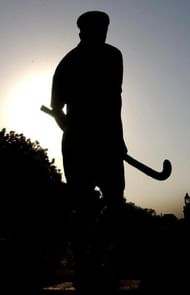These wisps of history apart, the Indian hockey team brought home the Holy Grail of sport, the Olympic gold, in 1928. There was a nice ring to the feat as this the gold medal won by the Indian hockey team was the first Olympic gold medal won by an Asian country in the modern Olympics.
Indian goalkeeper Richard Allen had the amazing record of not conceding a single goal throughout the tournament while Dhyan Chand was hailed as the Houdini of hockey with many goals in the tournament, including two in India’s 3-0 win in the final against Holland. Chand was promoted to the position of Lance Naik in the Indian Army after his return to India.
Four years later, the Indians defended their Olympic gold at the Los Angeles Olympics, beating USA 24-1 in the finals. Together, Dhyan Chand and his brother Roop Singh combined to score 18 goals, with Roop leading with 10. This Indian team had transformed into a world beating cavalcade with Dhyan Chand piloting the tremendous journey. More glory awaited the Indian team at the next Olympics.
The 1936 Berlin Olympics prompted a German newspaper to carry a headline, “‘The Olympic complex now has a magic show too” (poetically referring to Dhyan Chand’s stick work). Germany and India clashed in the final in the quest for gold and Germany started as favourites after their win over India in a practice match.
It turned out later that the solitary goal the Germans could manage against India’s eight in the final was the only one scored against them in the entire tournament. Three of the eight goals from India were issued from the stick of skipper Dhyan Chand. Adolf Hitler famously offered a job to Dhyan Chand, who played bare-footed in the second half of the match, impressed by his stupendous skills. Hitler’s job offer was rejected in what would count as one of the few refusals he ever faced.
A Padma Bhushan awardee, Dhyan Chand spent his post-retirement days giving back to the game which had made him a household name. He was the chief hockey coach at the National Institute of Sports, Patiala for several years and rendered yeoman service to a sport that was his making.
The “human eel” breathed his last on 3rd December 1979 at the All India Institute of Medical Sciences, Delhi. His proclamation of being a common man was taken a bit too seriously when he was consigned to a general ward after being diagnosed of liver cancer and later given priority treatment only after a scribe wrote about the same.
For a man who captivated people of all shades and echelons across the globe for years together and against whose silhouette future players will be evaluated, the cold shoulder treatment he got in his later years was unbecoming of such a celebrated centre-forward.
A statue of Dhyan Chand with four hands and four sticks was built in Vienna, Austria, representing the awe that marked his game over the years.
A Bharat Ratna thus wouldn’t really add to Dhyan Chand’s stature or on-field pyrotechnics other than being yet another honour in the man’s life. This award though, might just allow Dhyan Chand a comfortable squirm in his eternal sleep at the very least. Fittingly enough, 29th August every year is celebrated as the National Sports Day to mark the legend’s birthday.

